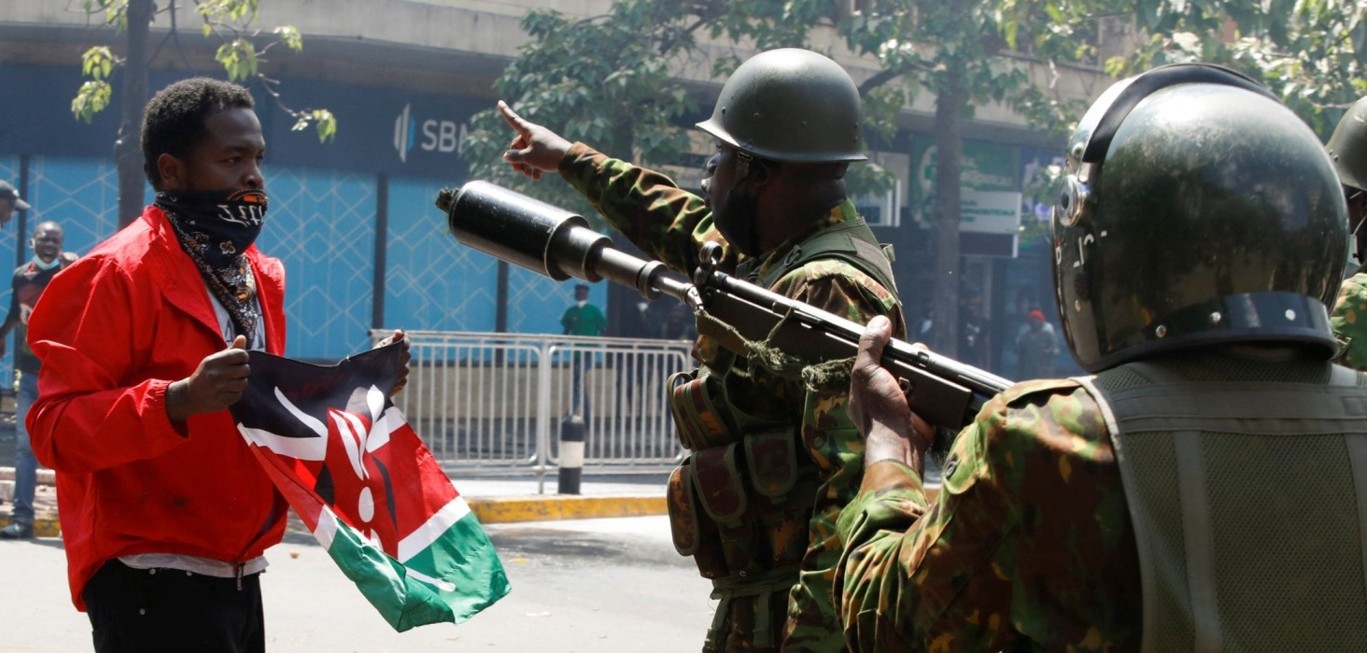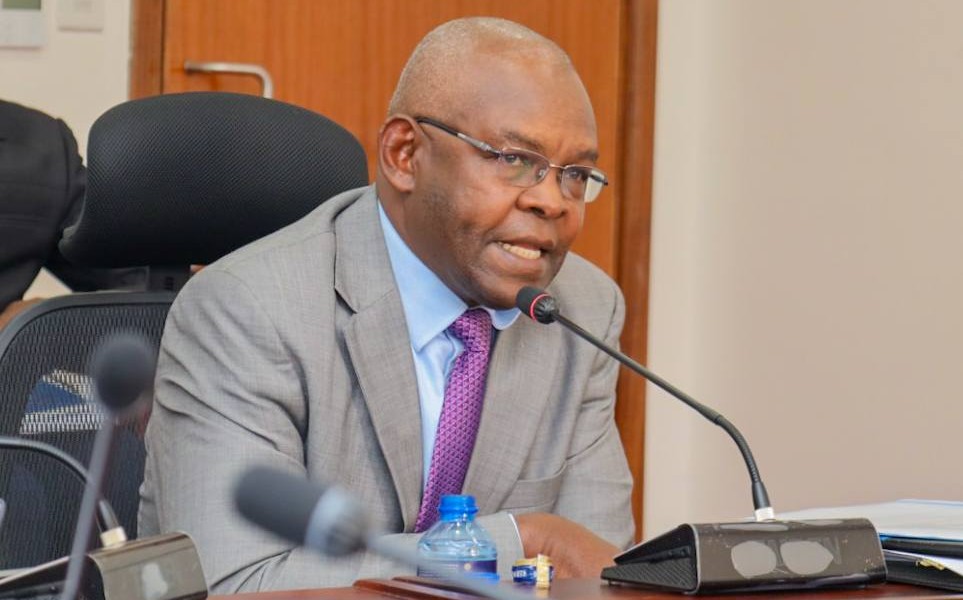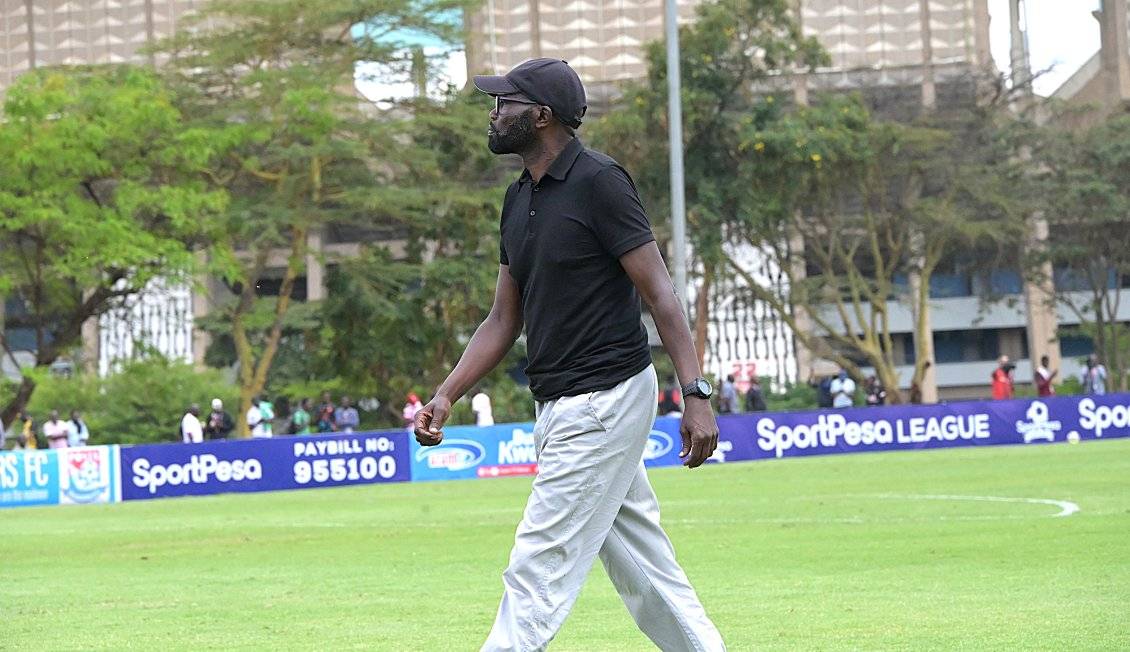Gen Z protests revive the spirit of Saba Saba Day
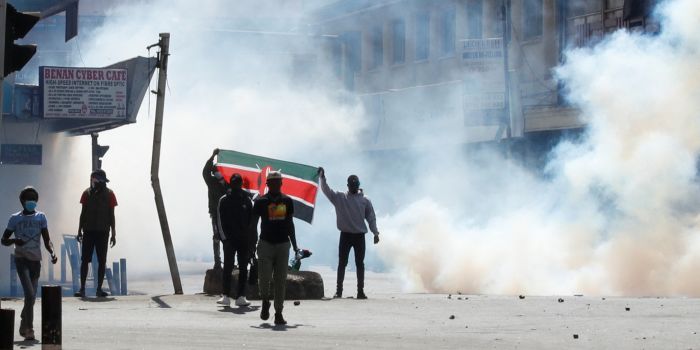
The protesters, who will be in all-black outfits, will meet in Nairobi's central business district to honour at least 39 people killed during three weeks of protests and reiterate their calls for Ruto to leave office.
Anti-government protesters, the majority of them Gen Z, have vowed to carry on with demonstrations primarily pushing for President William Ruto's resignation and a governance not tainted by corruption and selfish interests.
Since June 18, the youth have held protests in several counties, including Nairobi, Mombasa, Kisumu, Migori, Kisii, and Homa Bay, demanding changes in the government, including the withdrawal of the Finance Bill, 2024, which was eventually honoured.
More To Read
- Amnesty report shows at least 128 killed, 3,000 arrested in 2024–2025 Gen Z protests
- Ruto defends ‘shoot-to-leg’ order amid outcry, cites public safety
- Legal storm brews over Kenya’s cyber law as petitioners cry foul on privacy and expression
- TIFA survey: UDA most popular party at 16 per cent, ODM second with 13 per cent
- Three years of William Ruto: The successes and failures shaping his legacy as president
- Families of Gen Z protest victims demand justice before compensation
However, this was just the beginning as they are now chanting #RutoMustGo.
On Sunday, groups will march in commemoration of Saba Saba, the day in 1990 when pro-democracy demonstrations took place across the country in a call for multi-party politics during the regime of President Daniel Arap Moi. Moi, of the Kenya African National Union (KANU), served as the second president, from 1978 to 2002.
The protesters, who will be in all-black outfits, will meet in Nairobi's central business district to honour at least 39 people killed during three weeks of protests and reiterate their calls for Ruto to leave office.
With these events, the Gen Zs have awakened the spirit of Saba Saba in their agitation for transparency.
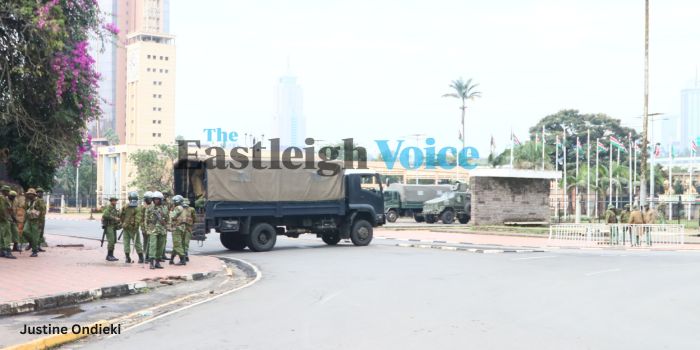 Anti-riot police officers stationed outside parliament in the Nairobi CBD on July 7, 2024, ahead of a Saba Saba march by protesters opposed to President William Ruto's administration. (Photo: Justine Ondieki/EV)
Anti-riot police officers stationed outside parliament in the Nairobi CBD on July 7, 2024, ahead of a Saba Saba march by protesters opposed to President William Ruto's administration. (Photo: Justine Ondieki/EV)
What happened
Saba Saba Day, marked on July 7 every year, is significant in Kenya's history, marking the fight for multiparty democracy and political freedom.
On July 7, 1990, Kenyans across six towns took to the streets to demand free elections and an end to the authoritarian practices of the one-party state.
In the late 1980s, Kenya was under the rule of KANU, the party that had governed since the country's independence in 1963. By the mid-1980s, KANU had transformed the country into a de facto one-party state.
The political environment was harsh, with those who opposed the government being jailed without trial, tortured or forced to leave the country. The one-party system also restricted free speech, and corruption was widespread.
These conditions led a group of political activists, lawyers, and former politicians to start pushing for constitutional reforms and the return of multiparty democracy.
Leaders such as Kenneth Matiba, Charles Rubia, Raila Odinga, and Martin Shikuku, were united by a shared belief that political pluralism was essential for Kenya's progress.
The pivotal moment came on July 7, 1990, when a massive protest was organised on Nairobi’s Kamukunji Grounds, demanding political reforms and the end of the one-party rule.
Despite government warnings and the deployment of security forces to prevent the rally, thousands of Kenyans defied the authorities and gathered to voice their demands for change.
The government responded with force, and the peaceful protest turned violent. Many demonstrators were arrested, including key leaders like Matiba and Rubia, who were detained without trial.
Over 20 people were reported to have died, thousands were left injured and others were arrested and charged.
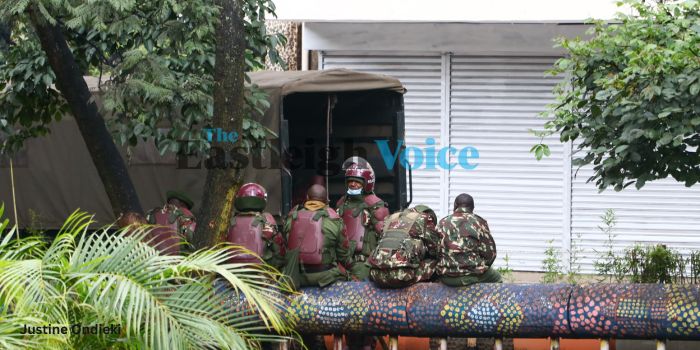 Anti-riot police officers on City Hall Way in the Nairobi CBD on July 7, 2024, ahead of a Saba Saba march by protesters opposed to President William Ruto's administration. (Photo: Justine Ondieki/EV)
Anti-riot police officers on City Hall Way in the Nairobi CBD on July 7, 2024, ahead of a Saba Saba march by protesters opposed to President William Ruto's administration. (Photo: Justine Ondieki/EV)
Key reforms
The crackdown, however, did not quell the growing demand for democratic reforms. Instead, it galvanised the movement and drew international attention to Kenya's struggle for democracy.
The events of Saba Saba Day marked a turning point in Kenya's political landscape as the brutality displayed by the government further fueled the demand for change.
International pressure, combined with internal unrest, eventually forced Moi to concede to some of the demands.
In 1991, Section 2A of the Kenyan Constitution was repealed, effectively ending the single-party rule and allowing for the formation of opposition parties. Kenya had its first multiparty elections in 1992, with about eight political parties participating.
The democratic space was also expanded as Kenyans were allowed to enjoy their freedom of speech and assembly, rights that were previously curtailed.
Saba Saba Day is now remembered as a symbol of the Kenyan people's resilience and their quest for justice and democratic governance.
Today, Saba Saba Day is commemorated across Kenya as a day of reflection and a reminder of the importance of political freedoms.
Thus far, opposition leaders, among them Siaya Governor James Orengo and Saboti MP Caleb Hamisi, have lauded the youths for fighting for their rights by demanding accountability from Ruto's government.
"I am happy because the young people of this country have decided to march for their lives. I support you. I support your clarion calls of saying no to dictatorship, no to tribalism in state appointments, no to police brutality, and no to corruption. I urge you to remain vigilant and steadfast because freedom is coming," Orengo said.
Saboti MP Caleb Hamisi said, "Today, as we celebrate Saba Saba Day, let's reflect on the power of Gen Z in Kenya's ongoing revolution for change. Your voices matter, your actions inspire. Let's shape a future that embodies justice, equality, and progress. No retreat, No surrender."
Top Stories Today
